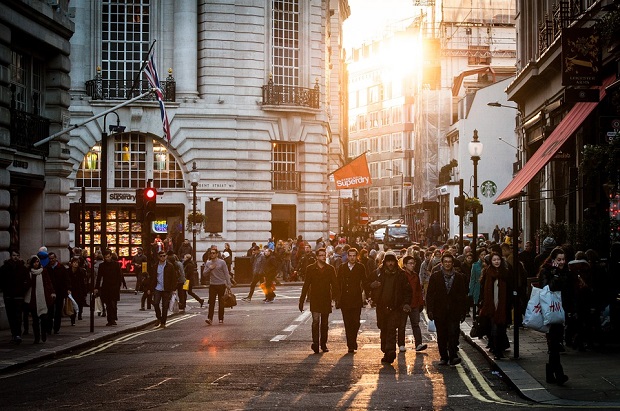UK shoppers shunned the high street and shopping centres during July sale season as they cut back on non-essentials due to higher inflation and stagnating wage growth, according to new data.
According to the latest figures from the British Retail Consortium (BRC) and Springboard, overall shopper footfall was down 1.1% in July, with the high street recording a 2.1% drop.
Shopping centres suffered a 1.3% dip, marking the fourth straight month that they had fallen. However, retail parks recorded a 1.7% uplift in numbers.
The East and South East were the only two regions that saw footfall growth in July, while the East Midlands showed the fastest decline on the High Street (-4.7%). Overall, the steepest decline in footfall in July occurred in the South West and Greater London, both showing a fall of -2.1%. Wales showed the first decline in seven months (-0.9%), while Scotland saw a further decline from June (-0.2%) to July (-0.4%).
Helen Dickinson, chief executive of the BRC, noted: “Most shopping destinations saw a decline in footfall in July compared with the previous year. Even high streets, which have seen fairly stable growth over recent months, reported a decline. Retail parks were the exception and have fared relatively well since March this year reflecting in part lower rental costs compared to prime and town centre locations as well as convenience for shoppers.
Dickinson added: “The overall decline in footfall translated into weak sales performance for stores in non-food particularly, which fell further into negative territory as consumers rein back spending on non-essential items.”
Diane Wehrle, Springboard marketing and insights director, said: “July’s results might well mark a seachange in consumers’ willingness to spend, as it was the first time since January that footfall dropped during both retail trading hours and into the evening. Over the last few months the growing importance of the leisure based trip has become a key part of the narrative when talking about retail destinations, but a -0.5 per cent drop in footfall post 5pm in July is the first evidence of a tightening of purse strings on casual dining and leisure trips.”
Analysis: Joined up digital and high street experience
Gill Holloway, Sales Director at Insight UK, commented: “With the latest figures from BRC revealing UK shoppers are tightening their belts in light of rising inflation and slow wages, it’s not all doom and gloom for retailers. As we continue to navigate through unchartered waters, with UK businesses operating in an incredibly competitive and often volatile environment, retailers have the opportunity to reinvent themselves.
“In recent years, the relationship between retailer and customer has changed irrevocably. Online natives have been born into a world where they’re able to know exactly who their audience is, how they behave on their website and how they browse between competitors. This means those retailers who can create multi-channel experiences by seamlessly linking online and offline will be best positioned to capitalise on the new, digitally driven path to purchase.
“However, in an attempt to keep people physically on the high street with new technologies, retailers need to consider the impact that introducing digital experiences in-store will have on its business. The overriding desire to touch and feel products before purchase cannot – as yet – be addressed properly by the online experience. Indeed, neither can the instant gratification of taking purchases home in a bag on the day. However, the way in which we achieve this is changing.
“Think of the Argos catalogue selection, check stock, buy now and take home approach. Then overlay it with one-of-everything on display, lots of strategically placed portable devices to select a basket to follow you or even guide you around the store, client experience representatives to provide a personal shopper experience, and an RFID to automatically pick and pack your selections from the stocking facility so shoppers can take them home immediately.
“Whilst marrying the world of online with brick-and-mortar can have its perks, it’s clear that there is still a lot of work to do. As digital transformation is a journey it’s important to remember that retailers are not going to get there overnight.”

